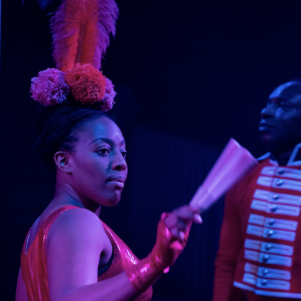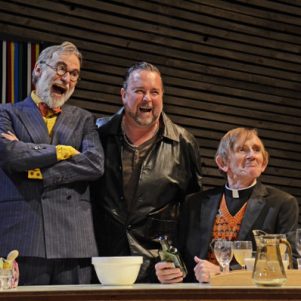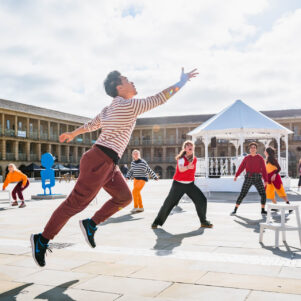A few years back I was involved in another play in which my character was partly responsible for assaulting a police officer and hiding his unconscious body in a cupboard.
That play was ‘Sex and Docks and Rock and Roll’ by Boff Whalley, the company was Red Ladder.
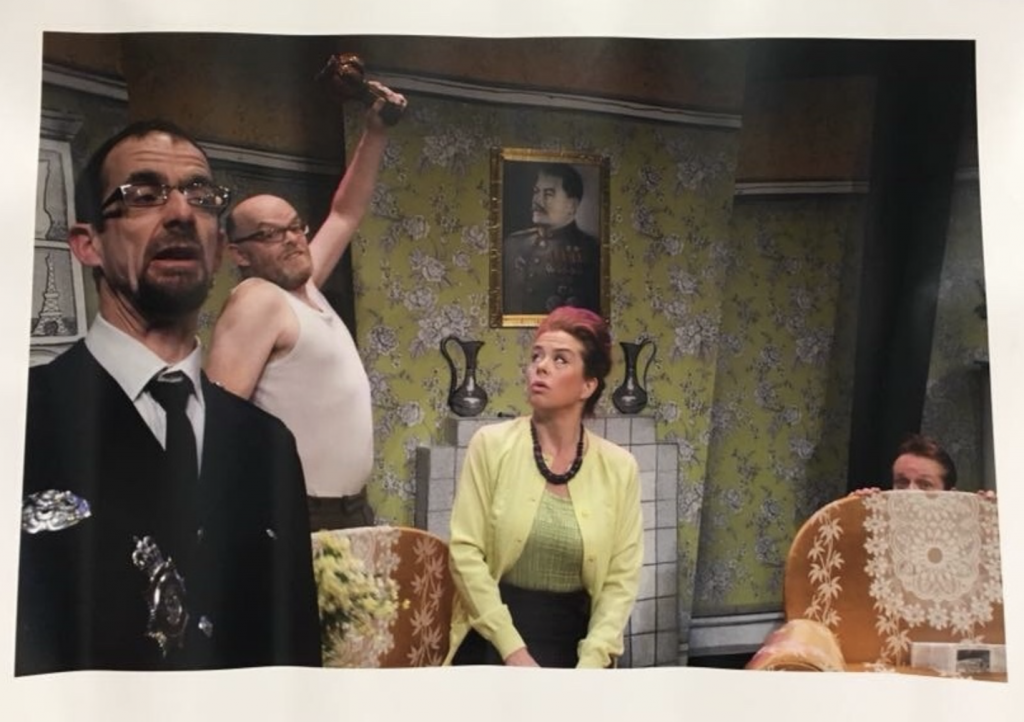
‘Sex and Docks and Rock and Roll’
Photo Tim Smith. Left to right: Adam Smith, Rod Dixon, Lisa Howard, Nigel Lister.
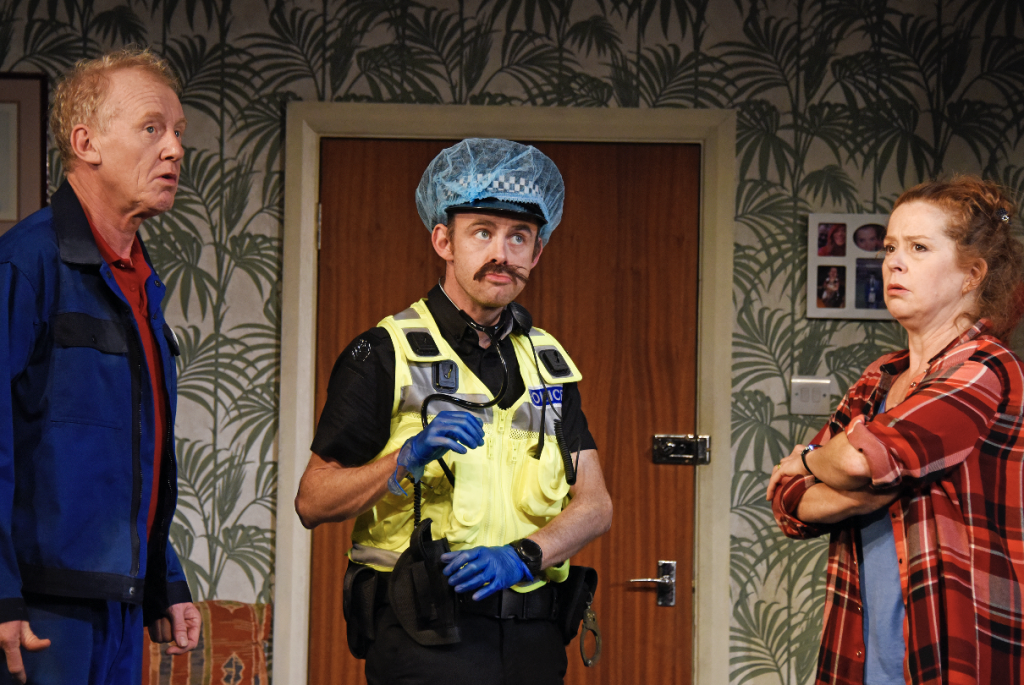
‘They Don’t Pay? We Won’t Pay!’
Photo by Nobby Clark
Left to right: Steve Huison, Mike Hugo and Lisa Howard
We toured the play a few times, including a visit to The Viaduct Theatre, as well as completing a short run at Leeds City Varieties. The Good Old Days music hall venue suited the direct address and comic musical style of ‘Sex and Docks’ well. The play was set around the dock strikes in Liverpool during the 1960’s.
Like ‘They Don’t Pay? We Won’t Pay!’, ‘Sex and Docks’ was political, farcical and about working class people struggling to stay inside the law whilst pushing back against control.
We toured to theatres and to several venues not usually associated with plays but where working people find their entertainment; social clubs, pubs, village halls, trade union conferences, working men’s clubs. These “non-velvet spaces” were interesting to play because of their history and because we were provoking debate with people who might not normally have a voice.
One such club was in Easington Colliery, a former mining village left for dead and all but desolated by its strikes and pit closure in the 1980’s and 1990’s. Easington Colliery was used as location for some scenes from the film ‘Billy Elliot’.
When we passed through there in 2012 beautiful Edwardian school buildings stood derelict along the main street, shops and businesses were closed and vandalised. Joblessness, violence and drug dependency plagued its community.
Easington Colliery Club where we performed had been the centre of the community at the time of the strikes, the kitchen was the base from which volunteer miners’ wives fed 500 pickets everyday with very limited resources; donated food and one ordinary little cooker.
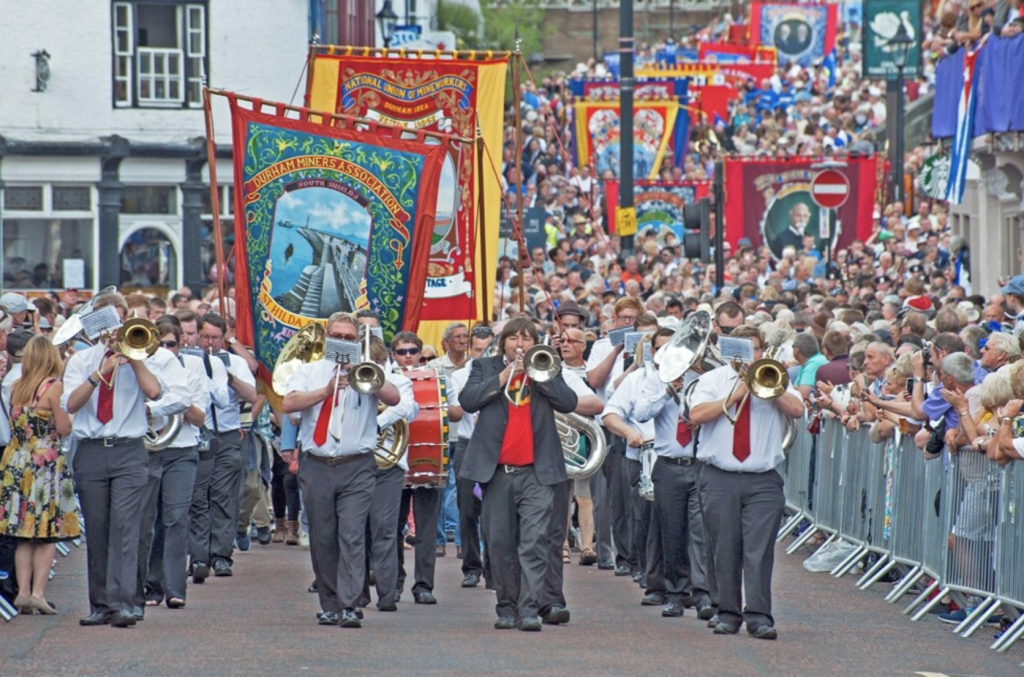
Durham Miners’ Gala. Photo Paul Mattsson.
While the members lounge teemed and hummed with drinking and darts, we performed in the back room. Our audience of a few ex-miners and their wives, curious locals and young protestors watched, participated and commented during and after the show. We heard impromptu speeches from people who had recently marched and spoke passionately of austerity, being kettled and the solidarity experienced whilst protesting. Although there seemed little hope of prosperity, the spirit of this community could not be dampened.
From Easington we travelled the few miles west to Durham to perform at the Miners’ Gala. Durham Miners’ Gala is the largest unofficial gathering of miners, trade unions and working people. The parade features colliery bands, brightly decorated banners depicting socialist and communist figures, and thousands upon thousands of people marching. The procession winds its way to the racecourse where left wing orators speak. In the past people such as Tony Benn, Billy Bragg and Jeremy Corbyn have addressed the crowds. When we were there Ed Miliband spoke, the first Labour leader to speak there in 23 years. It was exhilarating to be among so many people. The pride was almost tangible.


